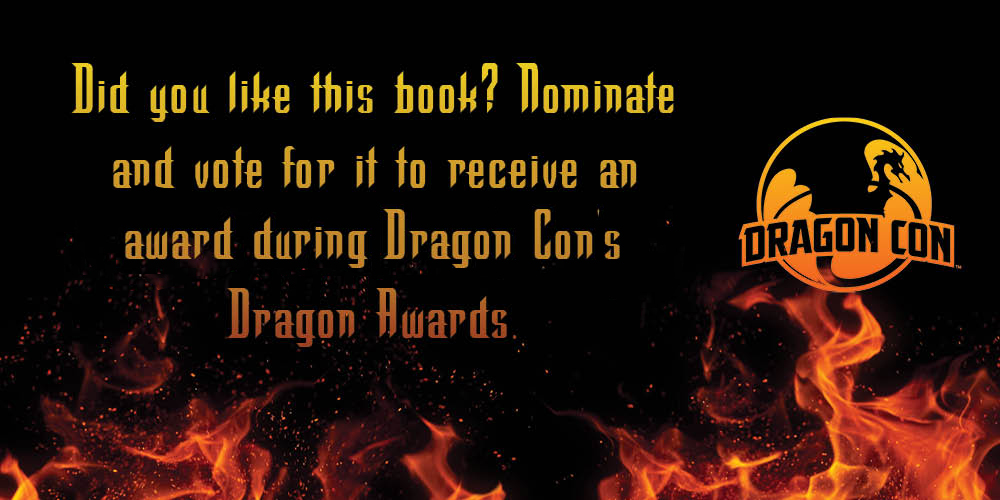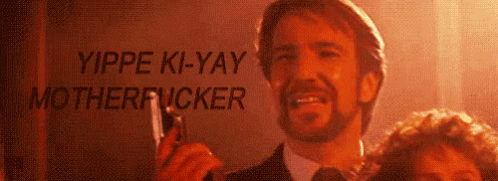 Not too long ago, I reviewed No Choice, the first in Mel Todd’s excellent Kaylid Chronicles series. It’s one of those books that remind me why I go to conventions – I get to meet great people and their awesome novels. Seriously, these books have been out for years, and I had to find out about them, and Mel, through conventions.
Not too long ago, I reviewed No Choice, the first in Mel Todd’s excellent Kaylid Chronicles series. It’s one of those books that remind me why I go to conventions – I get to meet great people and their awesome novels. Seriously, these books have been out for years, and I had to find out about them, and Mel, through conventions.Anyway, with book two, Commander, while book one could have been urban fantasy, book two is where we go into science fantasy.
Because at the end of book one, our heroine, McKenna Largo, is hearing voices. At the start of book two, the voice is having full conversations … with everyone else.
The ability to shift doesn’t come from anything mythological, but from nanotechnology.
And oh boy, does the start of the flap copy say it all.
It can always get worse, unfortunately.Discovering an Artificial Intelligence lives in your head, strike one. Having the Artificial Intelligence explain aliens are the origin of shifters on Earth, strike two. Having it announce you are the commanding officer of the earth shifters, strike three.
Deciding there is only so much one person can handle, McKenna Largo ignores the strange new voice in her head and focuses on her law enforcement career. She soon learns there are other aspects to being a shifter. Who knew cougars had such a great nose for drugs? Her career prospects increase with each drug bust, but so do her enemies. Still McKenna insists on living as normal a life as possible. After one too many successes, these enemies target not just on her, but also her family and friends. Finding herself in a situation she never imagined, McKenna must step up and be the leader they need, a true commander. Now if she could just devise a plan that won’t get them all killed
TLDR: just do what I did and buy the whole series already.
For this specific book, there is, surprisingly, not a lot of action. This is probably because the last 30% of the book is almost solid action. The majority of the novel is heavily character based. In some respects, it’s sort of like a John Ringo Vorpal Blade novel – the first half of the book is how things get done, and the second part is where the plot happens. And the flap copy describes the plot. Thankfully, it still doesn’t give you a lot.
The funny thing is that the action scattered throughout the novel is very cleverly executed. Because that action isn’t real – they’re simulations. As said above, the shifters are caused by alien nanites. The reason? The shifters are to be foot soldiers for an alien race—mostly mindless, obedient drones. Why terraform the planet when you can terraform the people – and wage a Von Neuman’s War without losing a single one of your own kind? It’s almost like John Ringo’s Darhel had come up with a better plan to screw over people. So, of course, the nanites come with their own AI, and the AI come with battle scenarios that read like set pieces from a Halo game.
So now if the plot gets slow, we can throw in a full space commando raid. Which was a nice way of inserting action into a story that, in other cases, would be considered slow… though, to be honest, we didn’t need the blow by blow of the scenarios to keep the story going. The story carried itself along well enough on its own.
Once again, one of the most impressive bits about this series is just how much thought goes into the impact of shifters suddenly existing in the world. If covers politics, sociology, mythology, science, medicine, and culture on every single level. And if Mel Todd doesn’t cover something, wait a chapter, she’ll probably cover it eventually. I’m almost certain that she came up with a lot of different impacts on plenty of different cultures, and anything she couldn’t show you in-story, she made a paragraph long vignette for a news story that topped each and every chapter.
And that’s just the side content. Mel puts in a ton of thought in on the individual elements of how things work. Again, it’s very John Ringo. Just going into the details of “Yes, you now have the sniffing ability of a drug dog, but with the higher processing function of a human being. Welcome to the drug squad,” was wonderful. She even had the legalities of such a sniffer cop down pat.
But yeah, I like the character building. I like the world building. I liked the progression of the story, as each book raises the stakes, and segues right into the next book.
Hell, I’ll tell you just how much of an impression this book made on me. When reading a book for review, I always make notes – either in the Kindle copy, or on a note pad (write on books? What are you, a heretic?). I haven’t even needed to reference my notes once during this entire review. Doing so now only provides some details – such as dealing with the foster care system, or that Mel Todd has a great way of delivering exposition that carries the plot, and an effortless way of conveying character backgrounds. Or that the little asides at the start of each chapter could be the plot of a book by themselves. Who am I kidding – Mel Todd even manages to make a reporter appear to be somewhat human. We won’t even go into the reality show.
Negatives: There are some editing issues here – and they’re issues that I recognize. A word left over from rephrasing a sentence, but it doesn’t fit in the new sentence. Or a left over “I” from a first person narrator … even though the current edition is very much third person personal. I can’t say they were more numerous than the errors in the first book (I remember none from No Choice, to be honest) but they were more jarring. They kicked me out of the story for a minute or two.
The second problem is that the ending of book two is similar to the ending of book one. While book one ends with McKenna and a bunch of shifters kidnapped and forced to work on behest of criminals, book two ends with … with McKenna and a bunch of shifters kidnapped and forced to work on behest of criminals. Granted, the mission is different and the stakes (and threat level) are higher.
Anyway, all the negatives aside, the book is 5/5 material. Just read it.
Oh, and by the way....
And, while you're here, be certain to check out the Dragon Awards nominations list. Everyone should be voting in this. Everyone. The bigger it is, the fewer jerks can say that it's "invalid." I lost track of how many people vote in the awards, but I stopped counting at 8,000.








![When The Gods Fell (Lost Civilizations Book 1) by [Paolinelli, Richard]](https://images-na.ssl-images-amazon.com/images/I/51V0LTLZ99L.jpg)








![Planetary: Venus by [Freeman, A. M. , Hallquist, David, Brumley, Bokerah , Antonelli, Lou , Foster, Monalisa , Willett, Edward , Burnett, Misha , Finn, Declan , St Aubin, Margot, Witzke, Dawn ]](https://images-na.ssl-images-amazon.com/images/I/51pi-1DA6fL.jpg)